Spanning classical and contemporary, in an array of colours and customisable options, cabinetry is key to on-trend bathroom projects.
Storage plays a vital role in the design of a bathroom, offering the practicalities of clearing away clutter while adding to the aesthetics of the project.
In fact, such has been the impact of furniture; it is included in the majority of new bathrooms. Product designer at Roper Rhodes Keith Alcock agrees: “By far the majority of bathroom sales feature a form of furniture.”
Sponsored Video
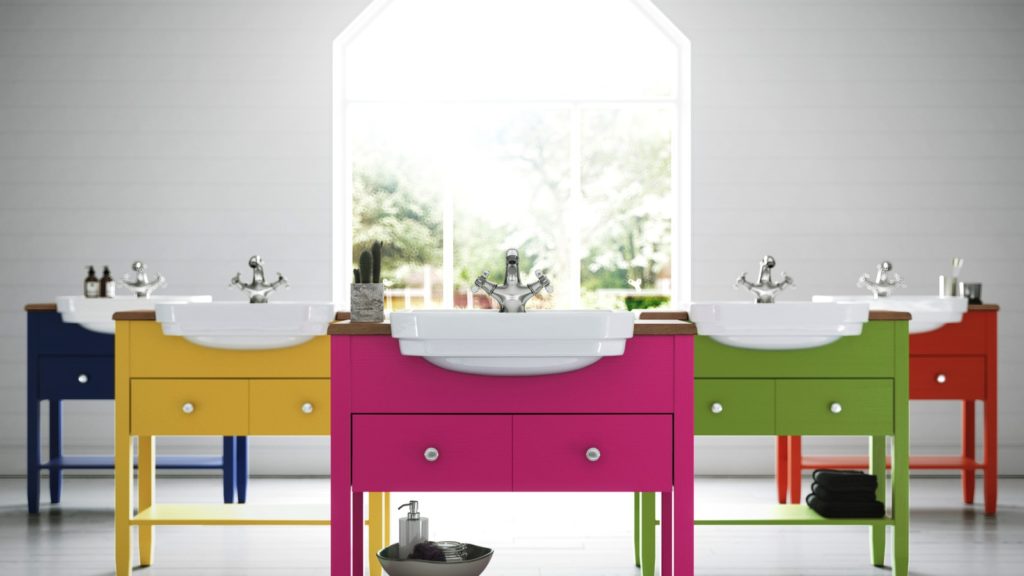
Expanding on its 1891 real wood collection, JT Ellis furniture is now offered in a choice of 30 colours. These span neutrals and pastels, alongside vibrant shades of Tuscan Yellow, Spring Green and Passion Pink
The popularity of bathroom furniture is further heightened by the wide array of styles and finishes to suit consumer’s preferences, widening the sales potential, as well as a broad choice of unit sizes to suit even the most restricted spaces.
Sales and marketing director at Frontline Bathrooms Michael Sammon comments: “We have continued to develop collections which include a wide variety of styles and sizes to suit any scheme or space.”
And Keith Alcock of Roper Rhodes points out his company has also added to its offer: “For Roper Rhodes, the bathroom furniture market is continuing to show impressive growth and we have continued to extend our collection to meet this demand.”
Transforming layouts
At the heart of bathroom furniture, the key storage requirements continue to be a vanity and perhaps a tall unit. As accomplished bathroom designers will be aware, they maximise the use of redundant space, which is particularly helpful in a small bathroom.
Managing director of Thomas Crapper Paul Dwyer adds: “Vanity units are a popular choice as they provide storage in an otherwise empty space but also keep unsightly pipework hidden.
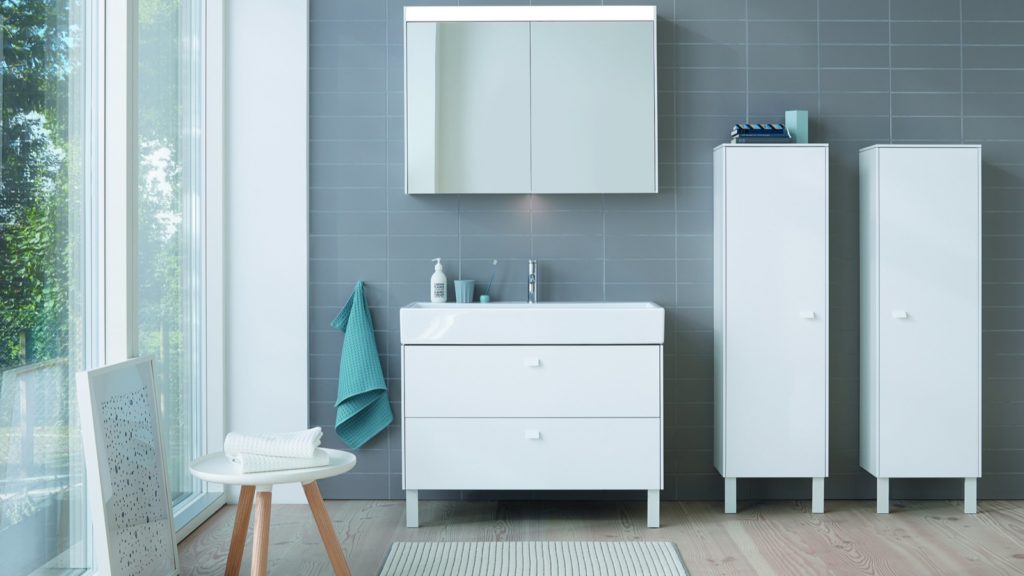
The Brioso furniture range from Duravit offers customised design options, as handles and feet can be supplied in a range of colours to co-ordinate or contrast with the fronts. It is available in a total of 15 finishes including real wood veneers, plus matt and gloss lacquers
“Taller units are ideal where space is at a premium; the smaller footprint makes less of an impact and provides ample storage to keep clutter at bay.”
Tall units also have the added advantage that they can create areas of privacy in the room. This is particularly useful if the bathroom is being used simultaneously, by partners or parents and children.
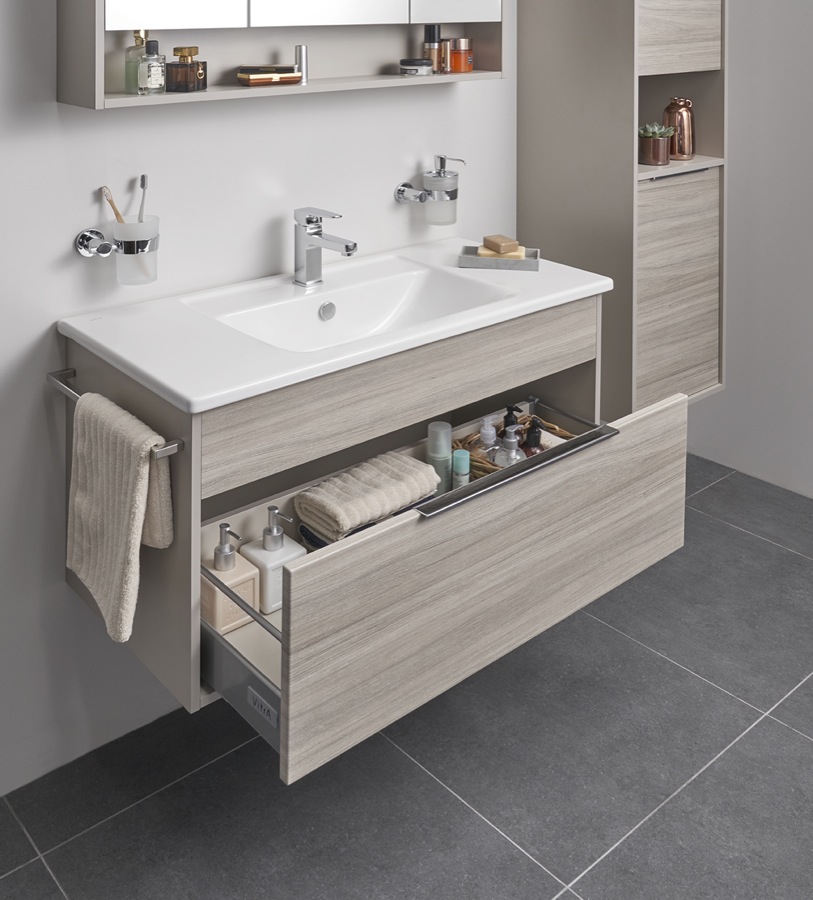
VitrA‘s Integra furniture offers underbasin units in a single drawer design, with matching mirror cabinets and tall units. The furniture, which includes a shallow depth for small spaces, comes in dual finishes
Marketing manager for VitrA Margaret Talbot continues: “Bathrooms are being designed for use simultaneously, and independently, by multiple generations.
“Parents and children can utilise the shared space also. Modesty is enhanced with clever designs of bathroom furniture like tall units that can shield a shower from the basin or WC area.”
Consider classical
This spatial planning is independent of the choice of cabinetry, which is important as classical styles are still just as relevant in the latest bathroom projects as contemporary furniture.
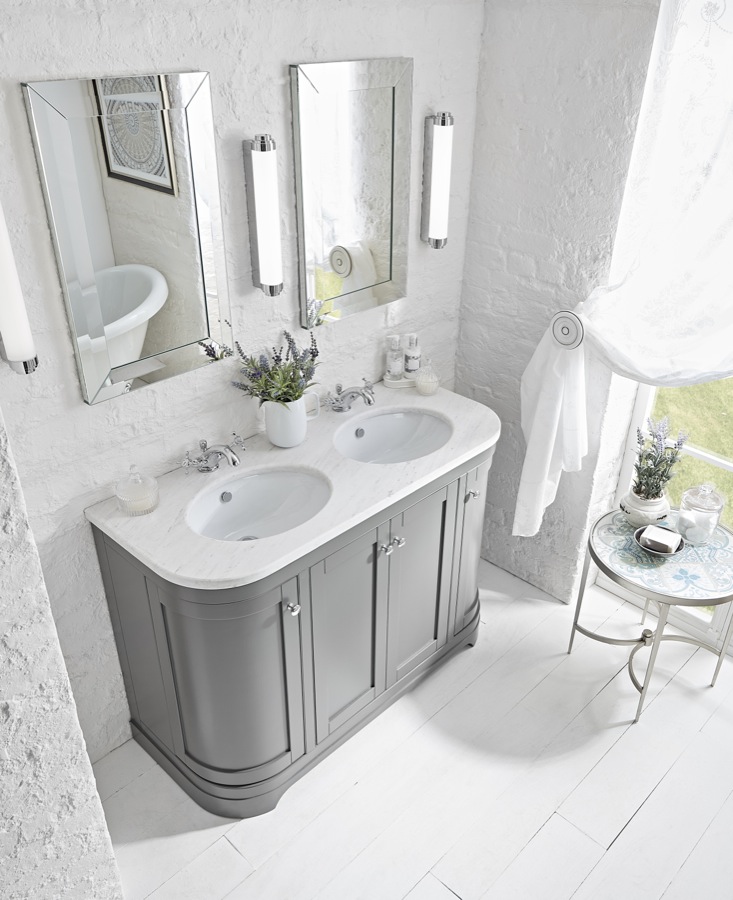
Reflecting the trend for classical furniture is the wooden, handpainted Marlborough collection from the Laura Ashley Bathroom Collection. Forming part of the range is the 1200mm freestanding, curved double basin unit in a Charcoal finish
Marketing manager for Laura Ashley Bathroom Collection Helen Shaw agrees: “Traditional style bathroom products provide a timeless, classic look that will never go out of fashion.”
However, there has been a resurgence in its popularity, as managing director of Inhouse Wayne Dance explains: “With clear country styling, the directional ‘Country Chic’ is a key trend for 2018.
“Let’s be clear, we are not hankering after old fashioned bathroom designs. This is a look that pays homage to country living but features very modern planning options, functionality and the latest innovations.”
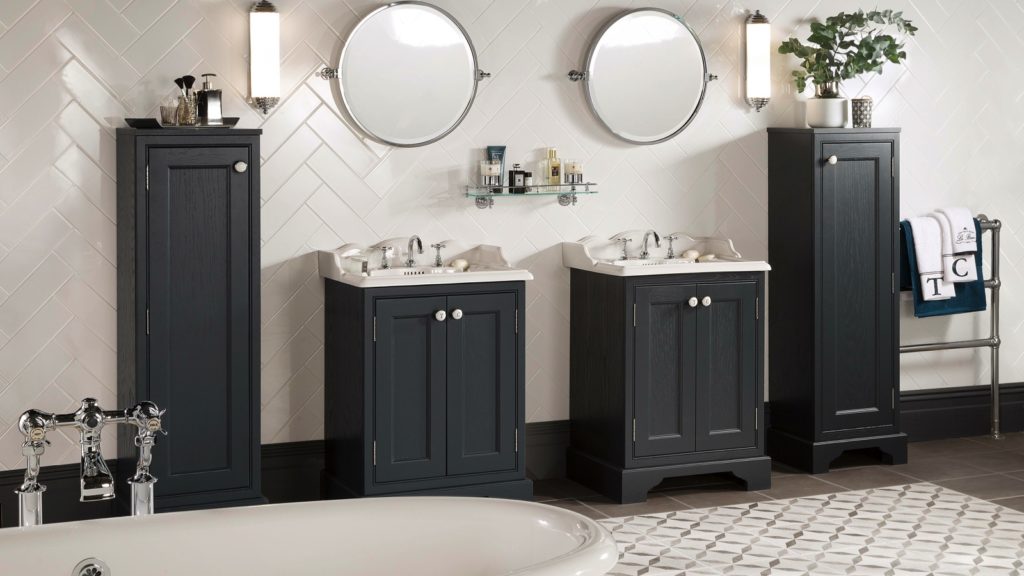
Made from solid and veneered oak, the Regent furniture range from Thomas Crapper offers a washbasin unit, tall storage unit, framed wall mirror and mirrored wall cabinet. It is available in a choice of five colours
In fact, Thomas Crapper has recently introduced the classically-styled Regent furniture collection to its portfolio, which offers modular storage in a timeless style.
Industrial movement
Concurrently, however, is the industrial trend which is very much based in the contemporary sphere and is a major influence on bathroom furniture styling.
Wayne Dance of InHouse says: “Industrial fusion is another emerging trend for 2018, a look that combines the solid look and feel of industrial metal framework, combined with the beauty of wood finishes.”
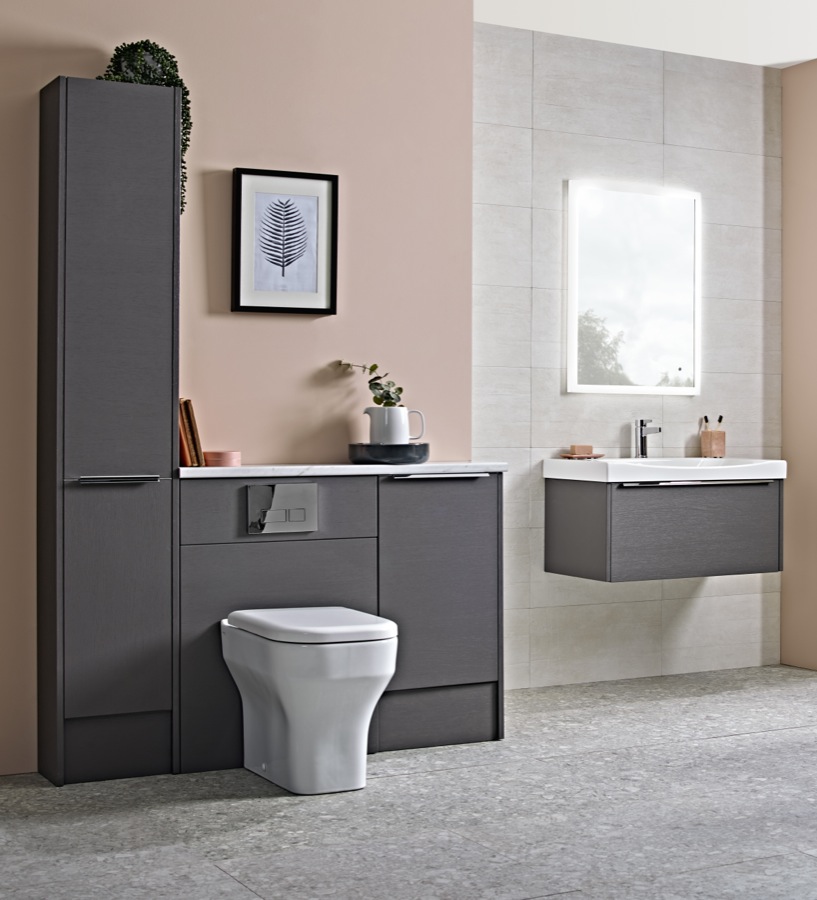
The Aruba range of fitted furniture from Roper Rhodes is now available in the textured Charcoal Elm finish. Pictured is the 800mm wall-mounted basin unit, back-to-wall WC unit, full height twin door cupboard and floor cupboard
And his view is supported by Michael Sammon of Frontline Bathrooms who adds: “The industrial trend is having a huge moment in bathroom design in general and furniture is no exception.
“Our new Structure units with modern matt black frames and accents combine an industrial aesthetic with functionality, as they come with handy side trays and integrated towel rails for optimum storage.”
Blue joins grey
Unsurprisingly, then, both of these trends have influenced the colour palettes of furniture, with grey still leading the way in on-trend schemes.
Wayne Dance comments: “Greys, woods and neutrals still represent continued growth in the market and, as the focus shifts towards rethinking furniture design, it remains the perfect palette for both contemporary and traditional settings.”
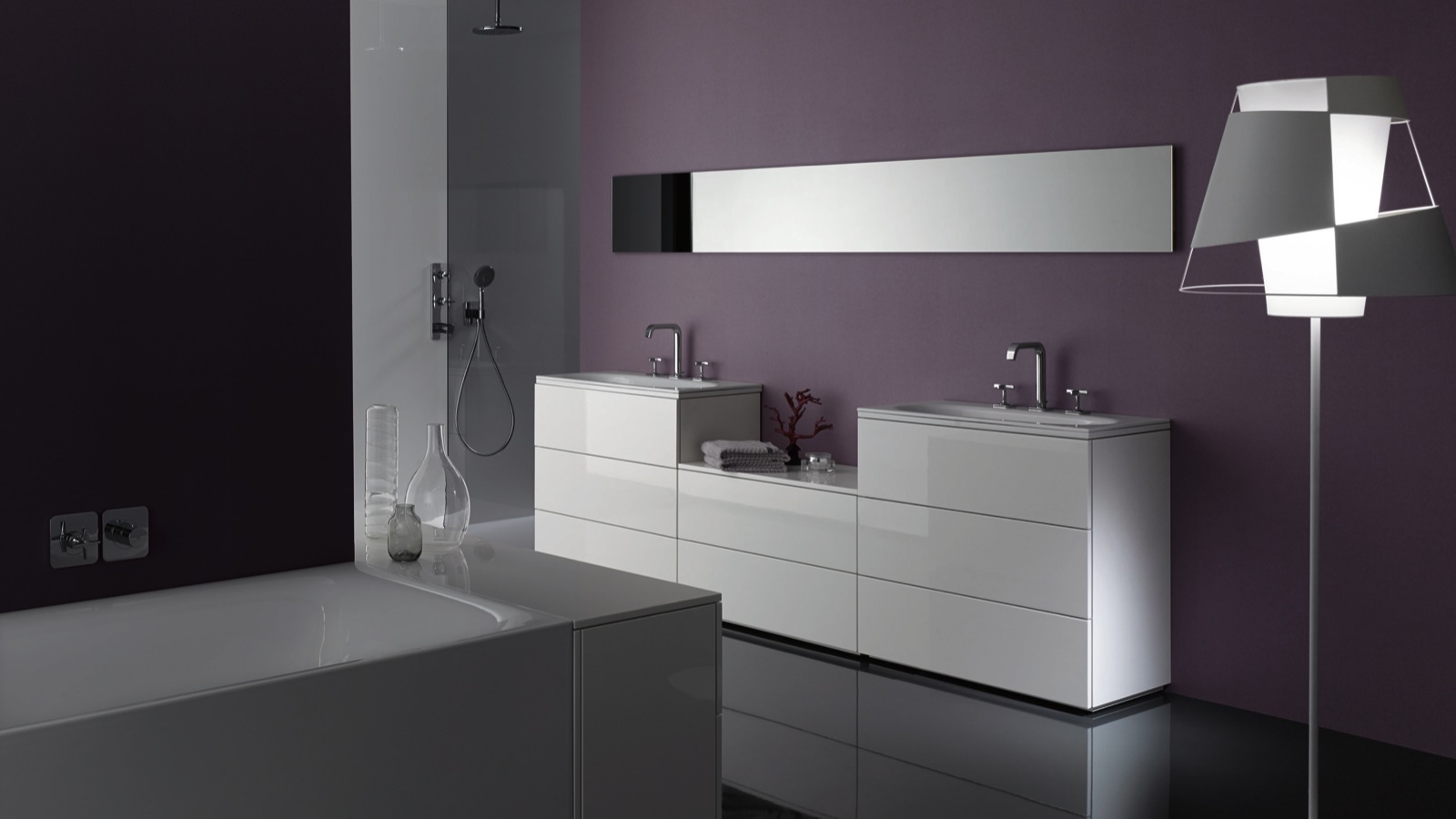
BetteModules is a mix-and-match bathroom furniture collection from Bette which includes drawers for washbasins, as well as storage for baths. Featuring push-to-open doors, the furniture comes in a choice of gloss and matt lacquers as well as three wood veneers
He continues: “This year, we see some industrial influence with the introductions of steel grey and oxide grey in light and dark tones.” However, he points to blue as coming through to join the existing palette, as he adds: “Additionally rich, high gloss indigo blue is introduced to the 2018 Pelipal collection, adding a totally new dimension.”
And Michael Sammon agrees blue is set to join the popularity of greys and woods, as he exclaims: “The popularity of greys and woods does seem to be unabating but we are also seeing deeper and more dramatic colours with the introduction of dark blues and black accents.”
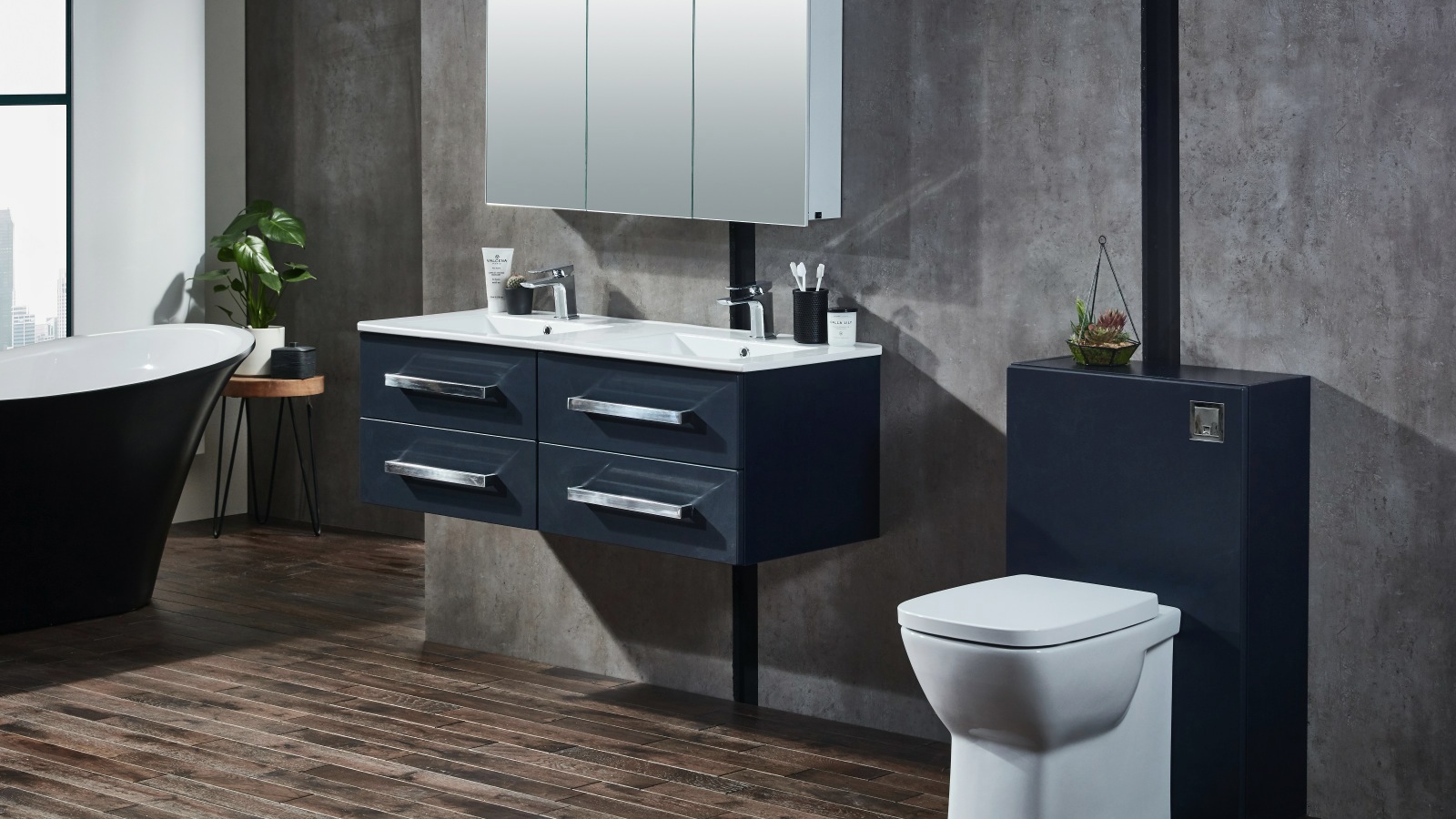
Part of Frontline Bathrooms’ Aquatrend collection is this 1200mm wall and double basin unit in the latest colour Indigo. It comes in a choice of five finishes
However, there has never been more choice for consumers with furniture offered in every conceivable hue. Duravit offers its L-Cube furniture in a choice of 30 surface finishes, while bathroom furniture manufacturer JT Ellis has introduced 30 colours to its 1891 real wood collection from neutrals and pastels, through to vibrant Salcombe Blue, Tuscan Yellow, Spring Green and Passion Pink!
Mass customisation
And now manufacturers have taken it a step further with mass customisation, allowing consumers to personalise their bathroom by offering choice within a defined range.
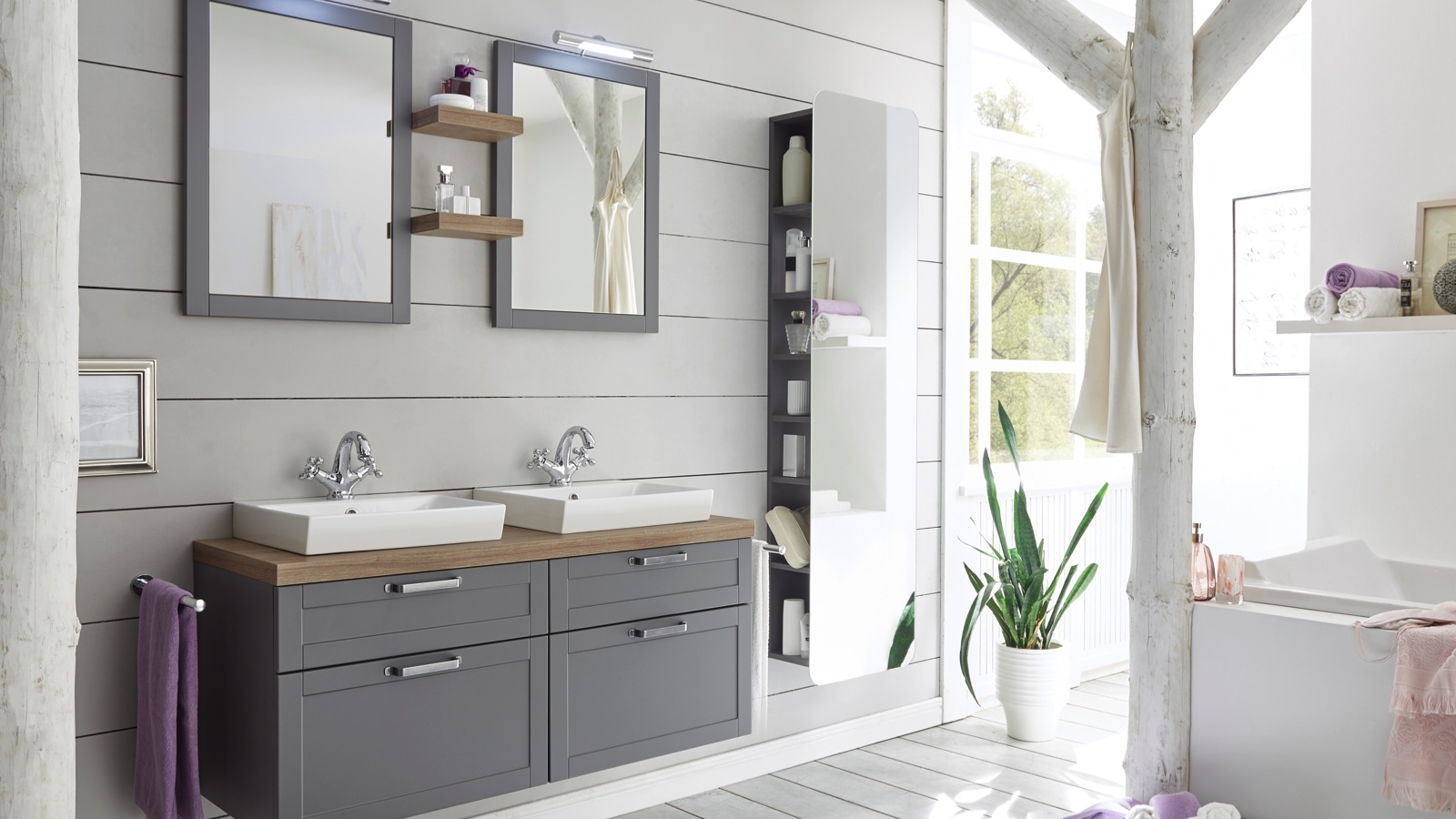
Pelipal’s Solitaire 9030 is a range of cabinets, mirrors and mirrored cabinets with additional LED lighting, including washbasin and tall units. It is available in a choice of five finishes including matt lacquer and horizontal grain effects in Rivera Oak and Oak White
Managing director of Duravit UK Martin Carroll comments: “Design versatility is a key trend currently. The new Brioso furniture range offers varied and customised design options, as the handles and feet can be supplied in a wide range of colours to co-ordinate or contrast with the furniture.”
Internal focus
While much of the focus is on the external elements of the furniture, it shouldn’t be forgotten interiors play a significant role in furniture choice.
Similarly to kitchen furniture, internal organisation, along with push-to-close fittings and LED lighting for external or internal illumination, are becoming more important in a sale.
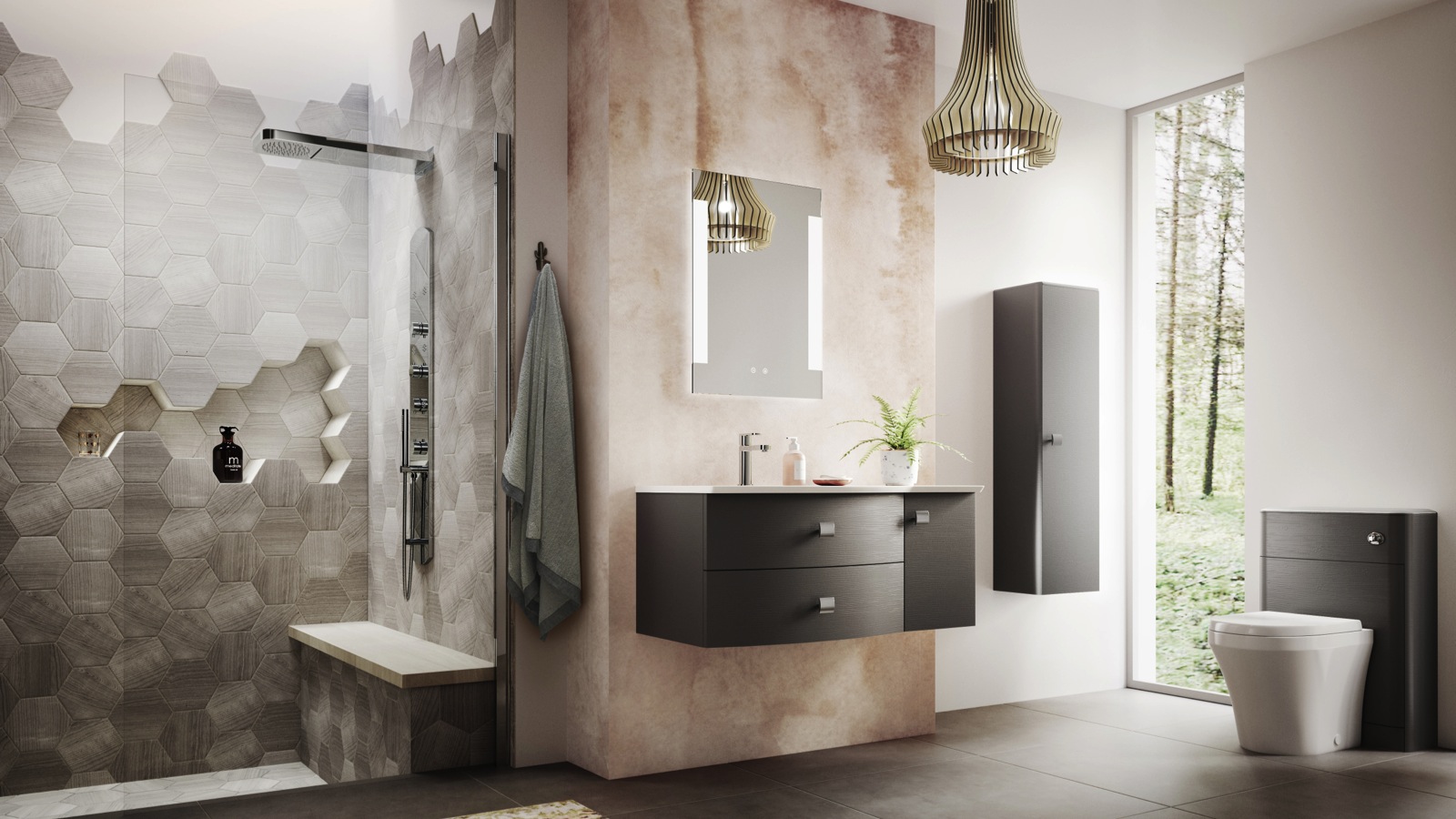
Sarenna from Hudson Reed comes in a choice of three matt finishes and features soft-close doors and drawers. Pictured is the 1000mm wall-hung vanity unit, 350mm wall-hung tall unit and floorstanding 550mm WC unit
These also play a key role in differentiating furniture brands. Keith Alcock of Roper Rhodes explains: “Internal storage components, such as drawer dividers, provide manufacturers with an opportunity to offer consumers features that differentiate their products from cheaper alternatives.”
Greater desire
Certainly, bathroom furniture is only likely to grow, as consumers seek to add value to their home through lifestyle benefits as well as financial worth.
With on-trend door colours and textures, complemented by internal storage options and even the latest LED lighting, furniture has never been so desirable and profitable for the high street bathroom retailer. It certainly appears to tick all the boxes.
For more features like this, why not check out our recent investigation of hypernature: is it a trend or a fad? Or, have a look at the future of our kitchens and bathrooms: connected appliances.



